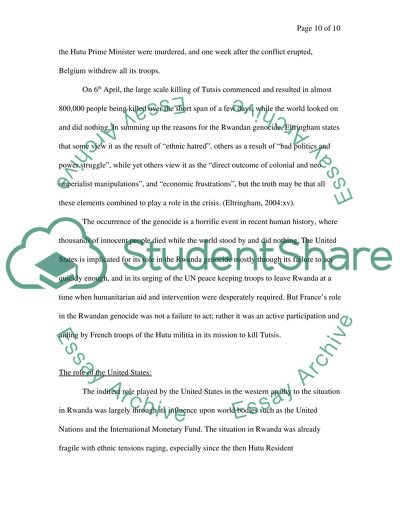Cite this document
(The role of France and the United States in the Rwandan Genocide Term Paper, n.d.)
The role of France and the United States in the Rwandan Genocide Term Paper. Retrieved from https://studentshare.org/history/1545862-compare-the-role-of-france-and-the-united-states-in-the-rwandan-genocide-and-account-for-the-differences-you-find
The role of France and the United States in the Rwandan Genocide Term Paper. Retrieved from https://studentshare.org/history/1545862-compare-the-role-of-france-and-the-united-states-in-the-rwandan-genocide-and-account-for-the-differences-you-find
(The Role of France and the United States in the Rwandan Genocide Term Paper)
The Role of France and the United States in the Rwandan Genocide Term Paper. https://studentshare.org/history/1545862-compare-the-role-of-france-and-the-united-states-in-the-rwandan-genocide-and-account-for-the-differences-you-find.
The Role of France and the United States in the Rwandan Genocide Term Paper. https://studentshare.org/history/1545862-compare-the-role-of-france-and-the-united-states-in-the-rwandan-genocide-and-account-for-the-differences-you-find.
“The Role of France and the United States in the Rwandan Genocide Term Paper”. https://studentshare.org/history/1545862-compare-the-role-of-france-and-the-united-states-in-the-rwandan-genocide-and-account-for-the-differences-you-find.


